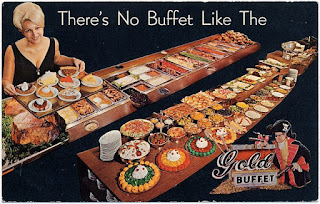Food or Cuisine? Observations on Manx Life, Part 3
Photo of Andrea making a meringue, c/o Georgie Riddell
The afternoon I arrived at the Cook Shack, Bride, Mannin (Isle of Man) was gorgeous. With no cloud in the sky and no haze or mist to obstruct the views, I was looking towards the Scottish coastline and gazing out at a sapphire sea. I was there to attend a much-anticipated course on modern Manx cooking, what was to be the finale of my fieldwork on a new book project with Beebe Bahrami, The Atlantic Celts: A Gastronomic Memoir from Ireland to Iberia.
Due to transportation logistics (three buses to get from my lodging in Colby to Bride), I arrived at the Cook Shack an hour before class was to officially begin, and so I had time to meet Georgie and her fellow chef, Peter to learn more about their cookery school and their understanding of Manx food traditions. It did not take long for Peter to get to the heart of the matter.
“Well, for a start, there is no such thing as Manx cuisine,” Peter told me. “There’s priddhas an’ herrin, subsistence food, what poor people ate because they had no choice.” This observation did not surprise me; in all the Atlantic Celtic nations I have visited, I have heard many variations of it. Sometimes, people speak of praties and herring, or tatties and pilchards, or winkles and tatwys, but the point is well-taken: eating cheap fish and shellfish along with potatoes was how people kept from starving. I nodded my head, and Georgie continued, explaining to me that today we would not be focusing so much on Manx cuisine, but rather, on Manx products, from kippers to flour. She wanted our class to be a casual, fun way to educate people on how essential it was to support Mannin farmers, herders, and fishers.
When I asked Georgie and Peter what products we would be using and the dishes we would be preparing, I was astonished at the range and ambition. We would start by churning butter from local Aalin Dairy cream. The resulting buttermilk would go into our bonnag, the Manx version of a soda bread, one that we would make using Laxey Glen Mills flour. We would make kipper pate, using Moore’s Traditional Kippers out of Peel, then mix up a warm broad bean salad with fresh turmeric root, dill, and garlic. We would bake an asparagus-salmon tart, mash a big bowl of potatoes with sauteed garden kale and onions to make colcannon, and then turn attention to searing just-caught Queen scallops along with local black pudding and bacon. We would fashion Scotch eggs out of a spicy lamb mince instead of the usual pork (using fresh-laid local eggs, of course), and toss a salad of just-picked lettuce. We would finish with rhubarb-strawberry custard tarts and a meringue roulade filled with lemon curd, whipped cream, and raspberries.
Georgie cutting herbs in her garden for our Manx cookery class
My mouth likely fell open as Georgie reeled off what was in store for us, and around this time, the other students began to arrive, each welcomed with a glass of Prosecco with strawberries.Soon enough, we all got to work, and with Georgie’s kind encouragement and Pete’s tips and demonstrations, we worked together, laughed, clowned around, taught one another, and managed to make a gorgeous banquet materialize. Georgie had indeed selected each dish to showcase how ordinary staples of a Manx diet, from bonnag, fish pate, custard tarts, and Scotch eggs, could become extraordinary if they were made with seasonal, local ingredients. Everyone learned that lesson because the food could not have been more delicious. I will never forget those seared Queen scallops sitting atop beautifully crisp-fried but creamy black pudding, all nestled in a bed of colcannon and accented with a slice of smoked back bacon
But as I sat down to write this post and recount the day, a pesky, thorny dilemma began to take over my narrative. Peter’s initial comment about the difference between food and cuisine has not left me, and in fact it gets to my challenge with this book project. For centuries, “cuisine” has suggested sophistication, wealth, and endless variety and play with ingredients. The word elevates eating to dining. “Food,” on the other hand, is trickier. As Peter phrased it in his comment to me, “food” suggests pragmatism; in other words, calories fuel the body for labour. Food means subsistence, and in a Manx or Celtic context, it has more often than not meant dreary monotony, an existence where one has no option but to eat to live, not live to eat.
One of the many working fishing boats anchored at Peel, Mannin
As I have hiked, talked, eaten, and cooked my way through the Atlantic Celtic nations, and as I have immersed myself in these nations’ histories, folklore, literature, and religion, I realize that I am walking a narrow, sometimes dangerous line between those two words and their connotations. “Cuisine” usually sells more books, cookery and otherwise. “Food” usually sells fewer. This is because "cuisine" is often about aspiration and can result in a lack of authenticity. It can end up being about staged, unrealistic settings and backdrops. Think of the power of Instagram and coffee-table cookbooks. Meanwhile, “food” points to mundane, hard realities of survival, not really the stuff of coffee-table cookbooks or even Instagram, although admittedly, I have taken some decent photos. But do Beebe and I want to publish our book? Find a readership? Hence the dilemma.
The important thing, my friend Fiona pointed out as I explained to her my difficulty in writing this blog post, is that “food” has also come to mean something solid and delicious, something substantive and real: calories, yes, but also something that a competent person prepares with dedication and thoughtfulness. Think of the importance of The Good Food Guide, and how it has become the United Kingdom’s gastronomic bible.
And so it occurs to me that Georgie’s and Peter’s course on modern Manx cooking was paying attention and homage to both of these meanings of the word "food," and that I, too, am paying attention and homage to those meanings as well. Food gets at the heritage of a nation, in this case Manx heritage, where people did subsist off of cheap and filling dishes like colcannon and kippers; however, food also celebrates the heritage of a nation whose citizens continue today to practice small-scale farming, sustainable fishing, and humane animal husbandry.
And so it occurs to me that Georgie’s and Peter’s course on modern Manx cooking was paying attention and homage to both of these meanings of the word "food," and that I, too, am paying attention and homage to those meanings as well. Food gets at the heritage of a nation, in this case Manx heritage, where people did subsist off of cheap and filling dishes like colcannon and kippers; however, food also celebrates the heritage of a nation whose citizens continue today to practice small-scale farming, sustainable fishing, and humane animal husbandry.
Ultimately, my day at the Cook Shack left me with a stronger sense of my mission, which is to allow the food to tell stories that are true, stories that connect Celtic nations and people over centuries, particularly over meals and while cooking.
Note: Text and photos (unless otherwise attributed) are the property of Andrea Broomfield and must be explicitly acknowledged as such.










Comments
Post a Comment